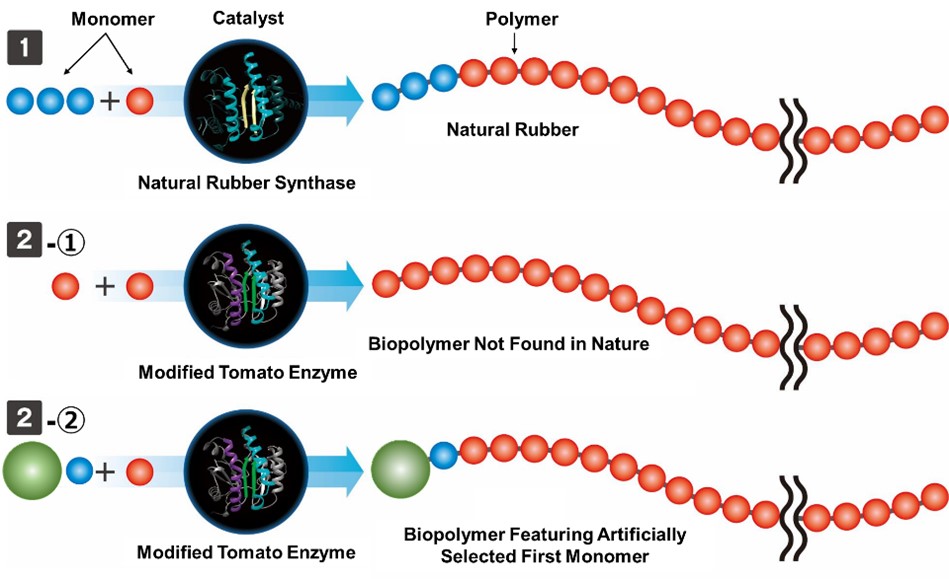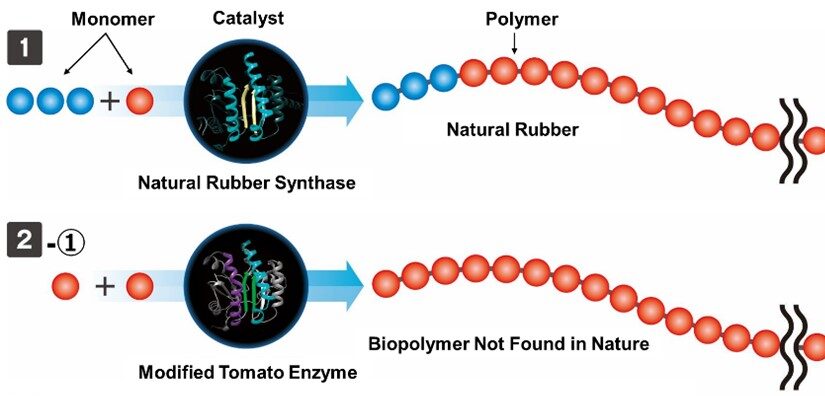Following a collaborative research project with Japan-based associate professor Seiji Takahashi of Tohoku University, associate professor Satoshi Yamashita of Kanazawa University and professor Yuzuru Tozawa of Saitama University, Sumitomo Rubber Industries has successfully synthesized new biopolymers, which will aid in the development of more fuel-efficient tires.
Building on previous research, SRI’s team found that by using modified tomato enzymes as a polymerization catalyst, polymer initial monomers could be selected at will. Through the discovery, SRI succeeded in synthesizing biopolymers incorporating initial monomers that are more beneficial for improving tire performance.
SRI has previously synthesized a biopolymer not found in nature by first identifying the segment of natural rubber synthase, which plays a key role in determining polymer chain lengths. This segment was then replaced with a similar segment of a specially modified enzyme derived from tomatoes.
By furthering company research into modified tomato enzymes, SRI found that the use of modified tomato enzymes weakens initial monomer selectivity, enabling synthesis starting from monomers, rather than the initial monomers typically involved in the initiation of polymerization.





